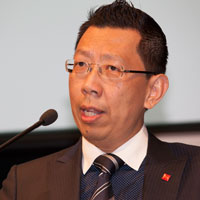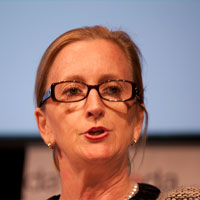PROGRESS 2050: Toward a prosperous future for all Australians
31/08/2012
 |
|
 |
|
 |
|
 |
|
Doing business with China is not just about understanding culture or language; successful corporations tailor their product to suit local markets, and Australian businesses need to adjust to this model, Western Australian Chinese Chamber of Commerce, President, Khoon Tan, told a CEDA forum in Perth.
Mr Tan advised companies to build a team which understands the concepts of Chinese culture and have them located in China to build relationships.
"Patience is a big part of Chinese culture. Businesses plan 10 years ahead, so you have to be patient, have money and you have to invest a lot into the relationship," he said.
He said a major element of Chinese culture is etiquette, mutual trust and friendships, and you should never underestimate the importance of relationships.
"One aspect of Chinese culture is the concept of face. It is critical that you keep face, save face and show face when doing business," he said.
He describes face as public perception, a person's social role and self-esteem, and it has the potential to destroy or help build relationships.
As part of the process, when a CEO or Chairman comes or goes to Australia or China, they have to be met by their counterpart CEO or Chairman, he said.
"When doing business with China, seldom say no; it is seen a sign of disrespect," he said.
"Gift giving is also important and always give it some thought. Never reject gifts."
ANZ Bank, Global Institutional Relationship Banking, Managing Director, and Institutional Australia, Managing Director, Cathryn Carver, said there are developments that will create opportunities for Australian businesses.
She said 70 per cent of Australia's exports to China are now coming from WA, with 80 per cent of Chinese investment being spent in WA.
"China is Australia's largest trading partner, export market, source of fee paying students and tourists, and one of the largest sources of direct foreign investment," she said.
Hong Kong has a total of $40 billion invested in Australia, she said.
Ms Carver said she was optimistic that Chinese demand for iron ore will remain large in the medium to long term.
"We believe a slower but more sustainable growth (path) will continue to benefit the economy," she said.
Ms Carver said ANZ's Super Regional Strategy, provides a differentiated proposition, offering products and services for those people and businesses trading and investing in the Asia Pacific, Australia and New Zealand.
"We were the first Australian bank to achieve local incorporation in China. We have been in mainland China since 1986 and we are one of Australia's largest investors in China," she said.
To understand China and the Chinese economy, Australia China Business Council, WA President and KPMG, China Business Practice, Chairman, Duncan Calder, said Australia needs to:
- Evolve to accommodate the emergence of China; and
- Invest time and efforts into skills to embrace opportunities.
Chinese investment can play a valuable role in developing sectors of the Australian economy, especially in rural and regional areas, he said.
He warned Australia is no longer the destination of choice for China, with increasing pressure from overseas.
Of Chinese businesses investing in Australia, Mr Calder said most companies are supervised by China's State Owned Asset Supervision and Administration Council (SASAC) which operates state owned enterprises (SOEs).
As part of the changing model in China, he said SOEs focus on economic and commercial performance and are used to:
- Facilitate structural change in China's economy;
- Acquire technology from foreign firms; and
- Secure raw materials from beyond China's borders.
Based on the transaction value, 95 per cent of Chinese investment into Australia in the last six years came through SOEs.
He said in Australia, China still owns less than one per cent of foreign direct investment, compared to the UK or the US which owns well over 20 per cent.
He said Australia is a long way from being swamped by Chinese capital, and we need to promote that Chinese investment offers a great opportunity for Australia.
Department of State Development, China, WA Regional Director, Nathan Backhouse, said we need to develop a WA-China policy around key sectors highlighted by China as requiring development such as IT, renewable energy and new materials, to ensure WA's current and potential advantages are considered.
He said the history of our relationship with China has been a marriage of mutual convenience, with WA by chance having one of the commodities that China needs (iron ore).
He outlined that China is and will continue to be systematic and structured in their approach to development because business and economics is a subset of society.
He told attendees that China at every level of government prefers a government-to-government relationship at least initially, as it believes government is trustworthy.
"China has a top down structure and if they say it (a business deal) will happen, it will happen. When working with China, you must accept you are dealing with China on China's cultural terms," he said.
